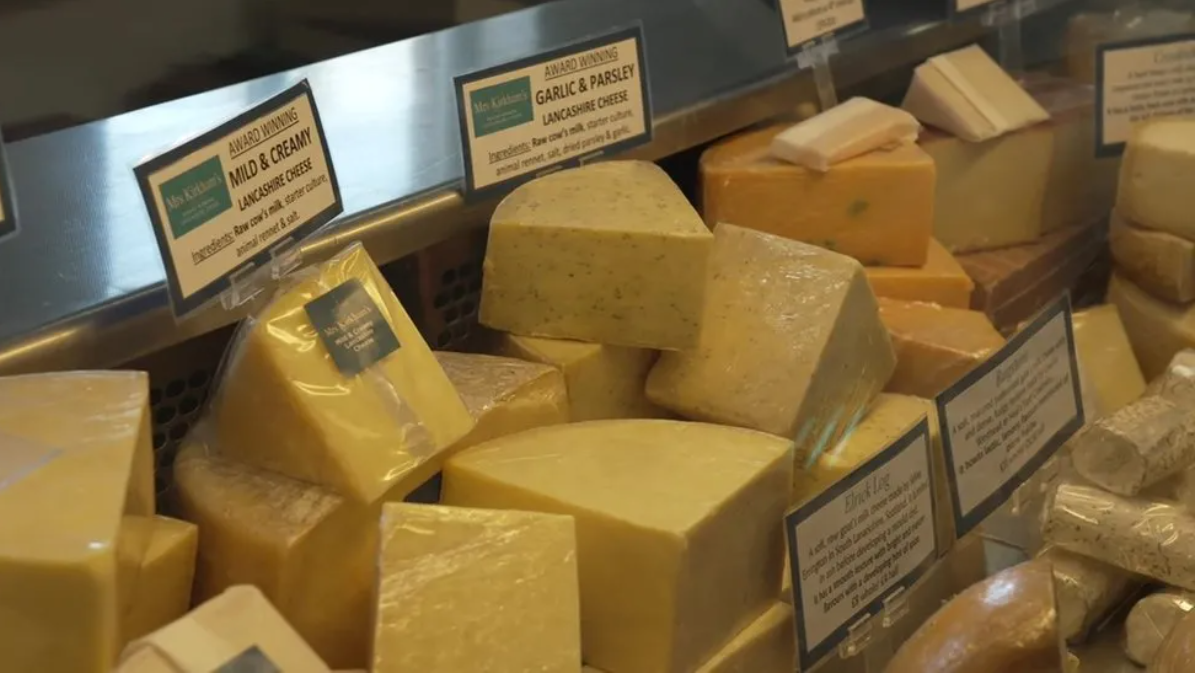One fatality reported in connection with E. coli-related cheese recall

Following a cheese-related outbreak of the bacterial infection in the UK, 1 individual in Scotland passed away from E. coli.
A few days ago, medical professionals issued a warning that certain items in the Mrs. Kirkham's line may be tainted and ought to be recalled out of caution.
Whether eating played a factor in the death is still unknown.
Mrs. Kirkham's announced that it has taken her cheese off the market and advised consumers to heed government guidance.
Investigators are still looking for any connections between the recalled cheeses and any similar occurrences, according to officials.
One Scottish victim of the infection has reportedly passed away, according to the UK Health Security Agency (UKHSA), but no additional information about the person, like age, sex, or whether they had any underlying medical issues, has been disclosed.
Since late July, 30 confirmed instances of E. coli that produces Shiga toxin (STEC) have been documented in England and Scotland, according to the report. Some of these individuals, who ranged in age from seven to 81, required hospital care.
The intensity of a STEC infection's symptoms might range, from moderate diarrhea to severe pains in the abdomen, vomiting, and bloody diarrhea.
Haemolytic uraemic syndrome (HUS) is a dangerous and life-threatening disorder that mostly affects the kidneys and can be fatal. Up to 15% of cases can develop from infection.
The public was cautioned against consuming the following cheeses by the Food Standards Agency (FSA) and UKHSA:
Mrs. Kirkham's Creamy and Mild Lancastrian
Mrs. Kirkham's Delectable Lancastrian
Mother Kirkham's Advancing Yorkshire
Mrs. Kirkham's Lancashire Smoke
No. 1 Farmhouse Kirkham's Lancashire cheese, Waitrose and Partners
Contamination of food is not the only way that STEC illness can spread. It can be contracted by intimate contact with an infected human or through direct interaction with an infected animal.
People should take any necessary precautions, according to Amy Douglas, incident director for gastrointestinal illnesses and food safety division at UKHSA.
You can take precautions to prevent infecting family members and friends throughout the holiday season if you are vomiting and experiencing diarrhea.
"You can prevent the transmission of diseases by cleaning surfaces with items containing bleach and washing your hands with soap and warm water. If you are experiencing symptoms, avoid preparing food for others for 48 hours after the symptoms subside.
"Many of us will be travelling for Christmas, but if you are unwell you should avoid visiting people in hospitals and care homes to avoid passing on the infection in these settings," she stated.
"Do not return to work or school once term restarts until 48 hours after your symptoms have stopped."
The Preston-based Mrs. Kirkham's said in a statement that it had been informed of the STEC epidemic.
"Consumer safety is our top priority and we will not take any risks when it comes to protecting our customers' health," a spokeswoman stated. We have recalled and removed all of our cheese from the market out of caution while the situation is still evolving. We are collaborating closely with the appropriate authorities.
"We are confident that there are no problems or worries about our manufacturing process that our local authorities have found. Moreover, the results of every preliminary test conducted on our cheese by government laboratories have been negative."
A spokesman for the company stated that while an investigation by food standards is underway to determine the origin of the epidemic, the company was awaiting the results of more tests.
They promised to give businesses that carry Mrs. Kirkham's items further information as quickly as possible and advised customers to heed official guidance.
Food Standards Scotland's head of incidents, Stuart McAdam, stated: "We are urging consumers to check whether they have this product or may have gifted it to others. We are aware that this recalled product may be popular over the festive period, especially as it has also been sold as part of a Christmas gift hamper."
He asked everyone to heed the instructions in the product recall notices, especially expectant mothers and anyone with compromised immune systems.